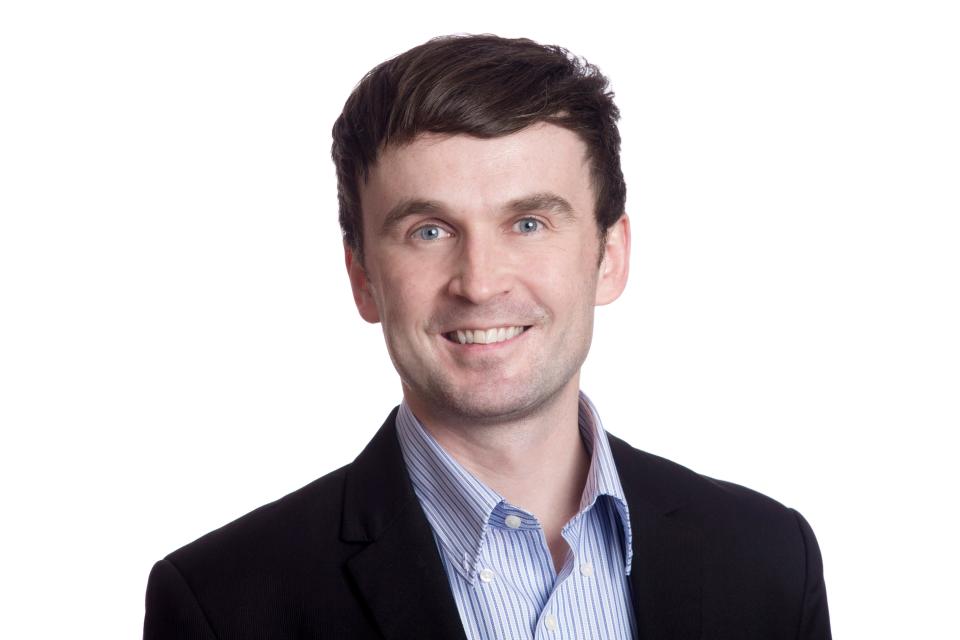Marist professor to explore Russian misinformation in Ukraine war in Staatsburg Wednesday
- Oops!Something went wrong.Please try again later.
When Russia invaded Ukraine in February, Marist College political science professor Juris Pupcenoks quickly recognized the disinformation campaign launched by President Vladimir Putin to justify its military aggression.
Putin said he was fighting the rise of neo-Nazism, preventing the alleged genocide of Russian speakers in eastern Ukraine, and ensuring that Ukraine did not join NATO.
“With the independent media now closed down in Russia, Putin has managed to control what many people in Russia believe about Ukraine. And the average Russian is buying his narrative,” Pupcenoks said.

Pupcenoks will speak on his research on Wednesday, June 8 at 7 p.m. at St. Margaret’s Episcopal Church in Staatsburg. It’s the third talk on Ukraine at the church since the Russian invasion began in February. His talk will be followed by a question-and-answer session, moderated by Poughkeepsie Journal columnist David McKay Wilson.
Pupcenoks has a first-hand understanding of Russian ways, having grown up in Latvia in the 1980s and 1990s. In 1991, when he was age 9, the Soviet Union collapsed and Latvia once more became an independent nation, regaining the independence it had from 1918 to 1940, when the Soviet Union took it over.
Pupcenoks emigrated to the U.S. in 1999 to attend Westminster College in Fulton, Missouri. He earned his masters and doctorate at the University of Delaware. He arrived at Marist in 2012.
He acknowledges Ukraine and Adolf Hitler’s Nazi regime had some similar interests during World War II, when the Ukraine had suffered a longstanding famine under the control of Russian leader Joseph Stalin. But he said there is little appetite today in the Ukrainian political sphere for the far-right ideology embraced by today’s neo-Nazis.
“There aren’t far-right parties in Ukraine with mass appeal,” he said. “And one of the most bizarre aspects is Putin’s claim that Ukrainian leaders are Nazis when their families suffered in the Holocaust.”
According to the Cato Institute, public opinion polls in Russia show up to 75% of Russians support the invasion of Ukraine. But Pupcenoks warns polling in authoritarian countries can be suspect.
“There’s always a question about polling in authoritarian regimes, with people wondering if they are being questioned to see what they think,” he said. “Still, there’s reason enough to believe that the majority of Russians are behind the war.”
He said Russia’s invasion of Ukraine has fueled the expansion of NATO, one of Putin’s major concerns. While it appears that Ukraine won’t be joining, both Finland and Sweden have applied for membership in the regional defense organization.
“The invasion is already backfiring,” said Pupcenoks. “Finland already fought a war with Russia in 1939 and they don’t want to fight another one alone. Finland has a huge border with Russia. The elites in Finland and the public finally support NATO membership. The same goes for Sweden. And even Switzerland has debated its neutrality.”
St. Margaret's is at the corner of Old Post Road and East Elm Avenue in Staatsburg.
Follow Tax Watch columnist David McKay Wilson on Facebook or Twitter @davidmckay415. He has written about Hudson Valley public affairs since 1986. Check out his latest columns at lohud.com
This article originally appeared on Poughkeepsie Journal: Ukraine war: Marist professor to speak on Russian misinformation

